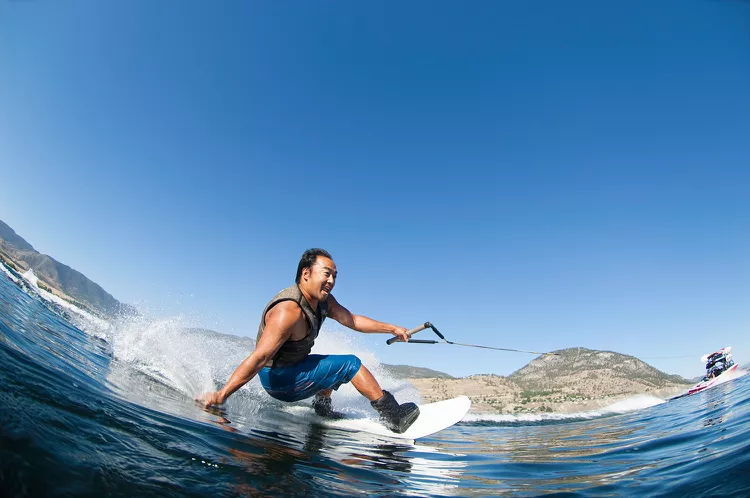A Brief History of Waterskiing
Waterskiing as a sport has its roots in Minnesota. In 1922, an 18-year-old named Ralph Samuelson got the novel idea of being towed by a boat while he wore wooden planks attached to each foot, much like the skis an Alpine skier would use. The idea wasn’t completely far-fetched; Samuelson was already skilled at the sport of aquaplaning, which is similar to wakeboarding except that the rider stands rather than kneels on the board.
Samuelson began promoting the new sport across the country in the 1920s; however, he never patented his invention. In 1925, a New Yorker named Fred Waller patented the first pair of water skis, which he dubbed Dolphin Akwa-Skees. Moreover, in 1928, a second water ski was patented by Don Ibsen of Washington. By the time the first trick ski was invented in 1940, waterskiing was slowly becoming a popular pastime, especially on the West Coast and in Florida.
Water Ski Construction
The first water skis were made of wood, usually mahogany or northern ash. While wood looks beautiful, it’s very heavy and is inflexible compared to modern materials like fiberglass. Consequently, wood water skis are much harder to maneuver than contemporary skis. Some of the most common brands of vintage skis include Cypress Gardens, Hydro-Flite, Wave King, Lund, Maharajah, Aqua Rite, and Healthways.
In contrast, today’s water skis are made from fiberglass, graphite, carbon fiber, or a compound of two or more of these materials. Fiberglass is cheap and easy to shape; however, it is heavier than other materials, making these skis harder to maneuver. Fiberglass/graphite compounds result in lighter, more flexible skis, although they are also pricier. Furthermore, carbon fiber is the costliest material used to make water skis, but it is very strong, even when the skis are thin. Pro-grade skis are typically made of carbon fiber.
Vintage Water Skis
Unlike antique camera equipment or vintage electronics, which can be used today as easily as they were back in the day, you’d be hard-pressed to find a reason to go waterskiing on vintage skis because they are clunky compared to modern skis. However, retro water skis hold other value. A quick search on Pinterest, Etsy, or eBay reveals a range of waterskiing projects and collections.
You can find old water skis for sale on online auction sites for between $100 and $300, depending on their condition, brand, and material. A pair of water skis hung over a fireplace makes a great room focal point. If you’re crafty with power tools, you might consider using old skis to create Adirondack chairs, wine racks, coat racks, and more. Therefore, platforms like Pinterest are excellent for design inspiration.
Fun fact: If you’re ever in Clear Lake, Ind., check out the Wood Water Ski Museum. You’ll find dozens of old skis from the 1920s, ’30s, ’40s, and ’50s when the sport was coming into its own.




